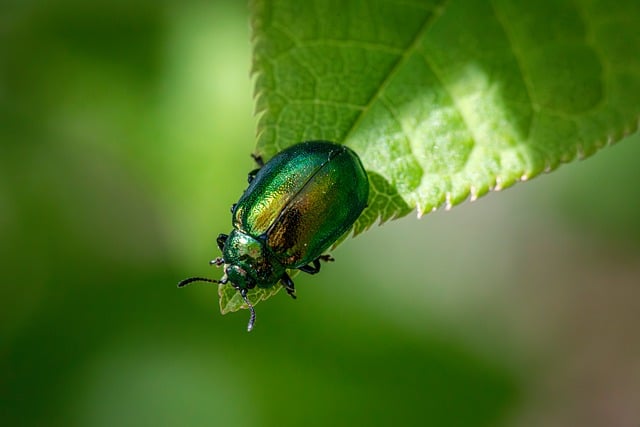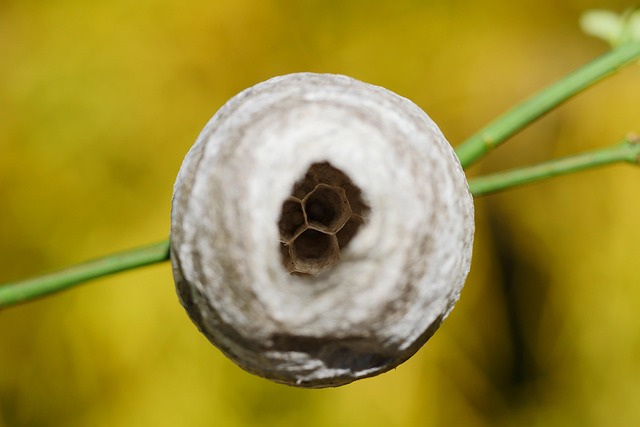In Castle Rock, homeowners with vegetable gardens are turning to sustainable pest management, driven by concerns for pet safety and environmental impact. Integrated Pest Management (IPM) combines non-toxic methods, biological controls, and cultural practices to protect crops without harmful chemicals. This approach promotes a healthier community gardening scene. Effective strategies include deploying natural predators, organic pesticides, plant repellents, physical barriers like mesh covers and fencing, and regular monitoring for early pest intervention.
In Castle Rock, sustainable pest management is essential for maintaining healthy vegetable gardens while ensuring pet safety. Understanding the impact of traditional pest control on pets highlights the need for responsible, pet-friendly solutions. This article guides you through choosing safe and eco-conscious treatments for your vegetable garden, offering practical tips to implement effective, pet-safe pest management strategies. Discover how to cultivate a vibrant garden without compromising your beloved pet’s well-being.
- Understanding Pest Control and Its Impact on Pets
- Choosing Safe and Sustainable Pet-Friendly Treatments for Vegetable Gardens
- Implementation Tips for Effective and Pet-Safe Pest Management
Understanding Pest Control and Its Impact on Pets

Pest control is a common concern for homeowners, especially those with vegetable gardens. However, it’s crucial to understand that traditional pest management methods can potentially harm pets if not used cautiously. Many conventional pesticides contain chemicals that may be toxic to animals, leading to various health issues. This is why adopting sustainable pest management practices in Castle Rock is increasingly becoming a preferred option for eco-conscious gardeners.
By opting for natural and pet-safe treatments, vegetable garden owners can protect their crops from pests while ensuring the well-being of their furry friends. Sustainable methods focus on integrated pest management (IPM), which involves monitoring and controlling pests through biological means, cultural practices, and targeted applications of non-toxic substances. This approach not only minimizes the risk to pets but also promotes a healthier and more balanced ecosystem in Castle Rock’s vibrant gardening community.
Choosing Safe and Sustainable Pet-Friendly Treatments for Vegetable Gardens

Implementation Tips for Effective and Pet-Safe Pest Management

When implementing pet-safe pest control methods, especially for sustainable pest management in vegetable gardens in Castle Rock, it’s essential to adopt an integrated approach that combines multiple strategies. Firstly, identify the specific pests targeting your garden and understand their behaviors. This knowledge allows you to deploy targeted treatments, minimizing the use of harmful chemicals. Incorporate natural predators like ladybugs and lacewings or utilize plant-derived repellents to discourage pests naturally. Regular monitoring is key; check plants frequently for signs of infestation, enabling early intervention before damage escalates.
In addition to these organic solutions, consider physical barriers as a sustainable pest management technique. Mesh covers can protect crops from insects while allowing sunlight and water penetration. For larger animals like deer, fencing offers a effective yet pet-friendly solution, ensuring your vegetable garden remains untouched by four-legged visitors. Remember, mixing methods creates a robust defense, making your Castle Rock vegetable garden resilient against pests without compromising the safety of your beloved pets.
When it comes to sustainable pest management for vegetable gardens in Castle Rock, opting for pet-safe treatments is a responsible choice. By understanding the impact of conventional methods on our furry friends and prioritizing their well-being, we can create a healthier environment for both pets and produce. With various eco-friendly options available, effective yet gentle pest control is achievable without compromising your garden’s yield or your pet’s safety. Remember, small changes in your pest management approach can make a significant difference in creating a harmonious outdoor space where pets and plants thrive together.
